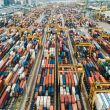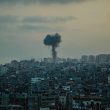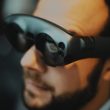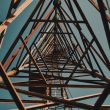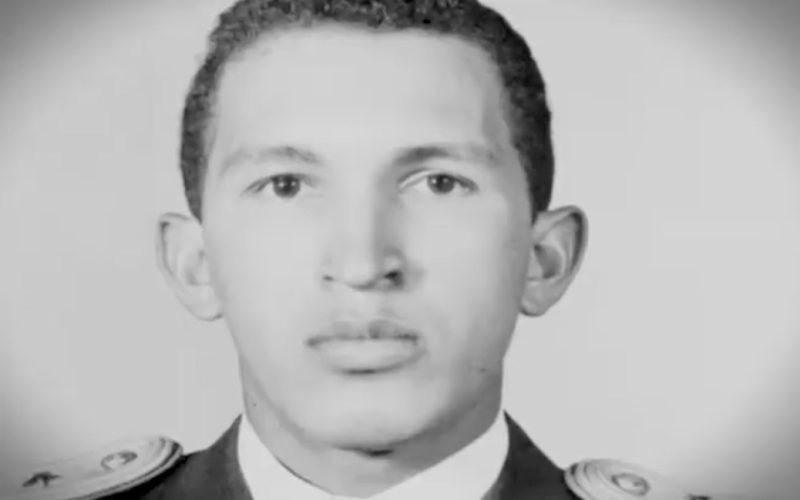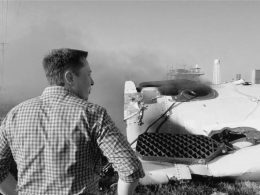Table of Contents Show
I. A Humble Beginning: From the Plains of Barinas to the Barracks
Hugo Rafael Chávez Frías was born on July 28, 1954, in the small town of Sabaneta, in the rural state of Barinas, Venezuela. Chávez’s early years were marked by poverty, the kind of grinding, relentless poverty that breeds both resilience and resentment. The second of seven children in a family of modest means, his father, Hugo de los Reyes Chávez, was a rural schoolteacher, and his mother, Elena Frías de Chávez, a homemaker. The Chávez family, like many others in Barinas, struggled to make ends meet, and young Hugo grew up acutely aware of the inequalities that plagued Venezuelan society.
Despite these hardships, Chávez was a bright and ambitious child. He was sent to live with his grandmother, Rosa Inés, in Sabaneta, where he attended primary school. It was under her care that Chávez developed a deep sense of social justice and a strong attachment to the ideals of Simón Bolívar, the 19th-century liberator of much of South America. Bolívar’s legacy would become the cornerstone of Chávez’s political ideology, shaping his vision for a new Venezuela.
Chávez’s early life was also marked by a fascination with the military. At the age of 17, he left his rural home to enroll in the Venezuelan Academy of Military Sciences in Caracas. The academy offered Chávez an escape from the poverty of Barinas and the promise of a career that would allow him to serve his country. But it also exposed him to the harsh realities of Venezuela’s deeply unequal society, where wealth and power were concentrated in the hands of a few, while the vast majority of the population lived in squalor.
At the academy, Chávez excelled both academically and athletically, but it was his growing political consciousness that set him apart from his peers. He immersed himself in the study of history and political theory, particularly the works of Marx, Lenin, and Bolívar, which he synthesized into a radical critique of the Venezuelan state. Chávez began to see the military not just as a profession, but as a vehicle for social change—a means by which to correct the injustices he had witnessed throughout his life.
In the barracks, Chávez’s charisma and leadership skills quickly earned him the loyalty of his fellow officers. He formed a clandestine group within the military, the Bolivarian Revolutionary Movement-200 (MBR-200), which aimed to overthrow the corrupt and entrenched political elites who had ruled Venezuela for decades. Chávez and his comrades were deeply disillusioned with the democratic system that had emerged in the aftermath of the fall of the military dictatorship in 1958. In their view, democracy had failed to deliver on its promises, and the government was little more than a tool of the wealthy oligarchs who exploited the country’s vast oil wealth while the poor languished in misery.
By the early 1980s, Chávez had risen to the rank of lieutenant colonel in the Venezuelan Army, but his ambitions extended far beyond the confines of military life. He was now a man with a mission, driven by a fervent desire to remake Venezuela in the image of Simón Bolívar’s vision of a united, egalitarian Latin America. The country was teetering on the brink of collapse, with rampant corruption, social inequality, and an economic crisis exacerbated by falling oil prices. Chávez believed that only a radical transformation, starting with the removal of the corrupt political establishment, could save Venezuela.
II. The Coup That Shook Venezuela: The 1992 Rebellion
On February 4, 1992, Chávez and his MBR-200 comrades made their move. The military coup they had meticulously planned was intended to topple the government of President Carlos Andrés Pérez, a symbol of the entrenched political corruption and neoliberal policies that had pushed millions of Venezuelans into poverty. The coup was bold and audacious, a coordinated strike in several cities across the country. Chávez himself led the assault on Caracas, the heart of Venezuelan power.
However, despite the careful planning, the coup quickly unraveled. Chávez’s forces encountered fierce resistance, and key targets, including the presidential palace, remained out of reach. Realizing that the coup had failed, Chávez made a decision that would change the course of his life and his country’s history. Rather than retreat into the shadows or flee the country, Chávez chose to surrender, but not before addressing the nation in a televised speech. Standing before the cameras in his paratrooper’s uniform, Chávez took full responsibility for the coup’s failure but insisted that their fight was not over. His words, “Por ahora” (“For now”), resonated deeply with the Venezuelan people, who saw in Chávez a leader who was willing to stand up to the corrupt elites.
Though the coup had failed, Chávez’s televised appearance transformed him from an obscure military officer into a national hero, a symbol of resistance against the established order. While he was imprisoned in the wake of the coup, his popularity continued to grow, particularly among the poor and disenfranchised who had long felt ignored by Venezuela’s political system. Chávez’s message of Bolivarianism, which blended nationalism, socialism, and anti-imperialism, began to resonate with a population desperate for change.
In 1994, after spending two years in prison, Chávez was released as part of a general amnesty granted by President Rafael Caldera, who had come to power in the wake of Pérez’s impeachment. Rather than return to military life, Chávez plunged headfirst into politics, determined to achieve through the ballot box what he had failed to accomplish with bullets. He founded the Fifth Republic Movement (MVR), a political party that sought to dismantle the old political order and establish a new, participatory democracy based on the principles of social justice and economic equality.
Chávez traveled across Venezuela, building a broad coalition of support among the poor, the working class, and indigenous communities. He railed against the “puntofijismo” system, a power-sharing arrangement between the two dominant political parties that had governed Venezuela since the fall of the dictatorship in 1958. Chávez argued that this system had created a closed political elite that was out of touch with the needs of ordinary Venezuelans. His message struck a chord with a population weary of corruption, economic instability, and social inequality.
By the time the 1998 presidential election arrived, Chávez had become the most popular political figure in Venezuela. His fiery rhetoric, charisma, and promises of a “Bolivarian Revolution” attracted millions of voters who saw in Chávez a leader who could finally deliver the change they had been waiting for. On December 6, 1998, Chávez was elected President of Venezuela with 56% of the vote, ushering in a new era of Venezuelan politics.
III. The Bolivarian Revolution: Transforming Venezuela
Hugo Chávez took office on February 2, 1999, with a mandate to transform Venezuela. From the very beginning, he sought to reshape the country in accordance with his Bolivarian ideals. The centerpiece of Chávez’s vision was a new constitution, which he argued was necessary to create a more inclusive and participatory democracy. Within months of taking office, Chávez convened a constitutional assembly, dominated by his supporters, to draft a new charter for the nation.
The resulting constitution, approved by a national referendum in December 1999, was a radical departure from the past. It expanded the rights of Venezuelan citizens, including the right to education, healthcare, and housing, and it granted greater autonomy to indigenous communities. The constitution also extended Chávez’s presidential term from five to six years and allowed for indefinite re-election, laying the groundwork for his continued rule.
Chávez’s domestic agenda focused on redistributing wealth and power to the poor. He launched a series of social programs, known as “Misiones,” aimed at tackling poverty, illiteracy, and healthcare. These programs were funded by Venezuela’s vast oil wealth, which Chávez sought to harness for the benefit of the majority rather than the elite. Under his leadership, the state-owned oil company, PDVSA, was brought under tighter government control, with profits redirected towards social spending. Chávez’s policies led to significant reductions in poverty and inequality, and for many of Venezuela’s poor, he was a savior who had delivered on his promises.
However, Chávez’s Bolivarian Revolution was not without its critics. His aggressive approach to governance, which often involved bypassing traditional democratic institutions, earned him accusations of authoritarianism. The opposition, composed of the traditional political elite, business leaders, and segments of the middle class, accused Chávez of centralizing power and undermining democratic norms. Tensions came to a head in April 2002, when Chávez was briefly ousted in a military coup. The coup, supported by elements of the military and the business community, was short-lived, as Chávez’s supporters took to the streets in massive protests, demanding his return. Within 48 hours, Chávez was back in power, a testament to the deep loyalty he commanded among the Venezuelan populace.
The failed coup only strengthened Chávez’s resolve to push forward with his revolutionary agenda. He intensified efforts to consolidate power, purging the military of disloyal officers and restructuring the judiciary to ensure that it was aligned with his vision. Chávez also moved to silence opposition voices in the media, taking over or shutting down television stations that were critical of his government.
On the international stage, Chávez positioned himself as a champion of anti-imperialism and a fierce critic of the United States. He forged alliances with leftist leaders across Latin America, including Fidel Castro in Cuba, Evo Morales in Bolivia, and Rafael Correa in Ecuador, forming what he called the “axis of good.” Chávez also sought to counter U.S. influence in the region by promoting regional integration through initiatives like the Bolivarian Alliance for the Americas (ALBA) and the Petrocaribe oil agreement, which provided discounted oil to Caribbean and Central American countries.
Chávez’s foreign policy was deeply intertwined with his domestic agenda. He used Venezuela’s oil wealth as a tool of diplomacy, providing financial and logistical support to leftist movements and governments throughout Latin America. His rhetoric, often laced with anti-American sentiment, resonated with many who saw him as a leader standing up to the hegemonic power of the United States.
IV. Challenges and Decline: The Economic and Political Crisis
By the late 2000s, cracks were beginning to appear in Chávez’s Bolivarian Revolution. While his social programs had delivered tangible benefits to the poor, they were heavily dependent on the country’s oil revenues, which accounted for the vast majority of Venezuela’s income. Chávez’s economic policies, which included nationalizing key industries and implementing price controls, led to inefficiencies, corruption, and a decline in productivity. The private sector, already weakened by years of government intervention, struggled to meet the demands of a growing population, leading to shortages of basic goods and a rise in inflation.
The global financial crisis of 2008 dealt a severe blow to Venezuela’s economy, as oil prices plummeted, reducing the government’s ability to fund its social programs. Chávez’s response was to double down on his socialist policies, further nationalizing the economy and increasing state control over all aspects of Venezuelan life. While these measures solidified his support among the poor, they also exacerbated the country’s economic problems, leading to widespread discontent among the middle class and the business community.
In 2011, Chávez was diagnosed with cancer, a development that cast a shadow over his presidency. Despite his illness, Chávez remained determined to continue his political project. He traveled to Cuba for treatment, while maintaining a firm grip on power back home. In 2012, he ran for re-election and won a decisive victory, securing another six-year term in office. However, his health continued to deteriorate, and by early 2013, it became clear that Chávez’s time was running out.
As Chávez’s health declined, so too did Venezuela’s economy. The combination of falling oil prices, economic mismanagement, and widespread corruption led to a deepening crisis. By the time of Chávez’s death on March 5, 2013, Venezuela was already on the brink of collapse. His chosen successor, Nicolás Maduro, struggled to maintain control, as the country descended into chaos, with hyperinflation, food shortages, and violent protests becoming the norm.
Chávez’s death marked the end of an era, but the consequences of his rule continued to shape Venezuela’s fate. The economic and political crisis that followed in the wake of his passing exposed the fragility of the system he had built, raising questions about the sustainability of his Bolivarian Revolution.
V. Legacy of a Revolutionary: Chávez’s Enduring Impact
Hugo Chávez left behind a complex and polarizing legacy. For many of Venezuela’s poor and marginalized, he was a hero who gave them a voice and a place in the nation’s political life. His social programs lifted millions out of poverty, and his vision of a more just and equitable society resonated with those who had long been excluded from the benefits of Venezuela’s oil wealth. Chávez’s charisma, his connection with the people, and his unwavering commitment to his ideals made him one of the most influential leaders in Latin American history.
Yet, Chávez’s legacy is also one of deep division and economic collapse. His centralization of power, erosion of democratic institutions, and economic policies contributed to the crisis that has engulfed Venezuela in the years since his death. The country that Chávez sought to transform into a socialist paradise has instead become a symbol of dysfunction and despair, with millions fleeing the country in search of a better life.
Chávez’s impact extended far beyond Venezuela’s borders. He inspired a new generation of leftist leaders in Latin America, who sought to emulate his model of governance. However, the decline of Venezuela under Chávez’s successors has served as a cautionary tale, illustrating the dangers of unchecked power, economic mismanagement, and the risks of building a political system around a single charismatic leader.
In the end, Hugo Chávez was a man of contradictions—a soldier who became a revolutionary, a leader who sought to empower the poor but left behind a country in ruins. His life and legacy continue to provoke debate and reflection, as Venezuela and the world grapple with the consequences of his rule. Chávez’s story is one of ambition and idealism, but also of the perils that come with the concentration of power and the pursuit of a singular vision at all costs. In the annals of history, Chávez will be remembered as a leader who dared to challenge the status quo, but whose revolution ultimately fell short of its lofty goals, leaving behind a legacy as complex and troubled as the man himself.
